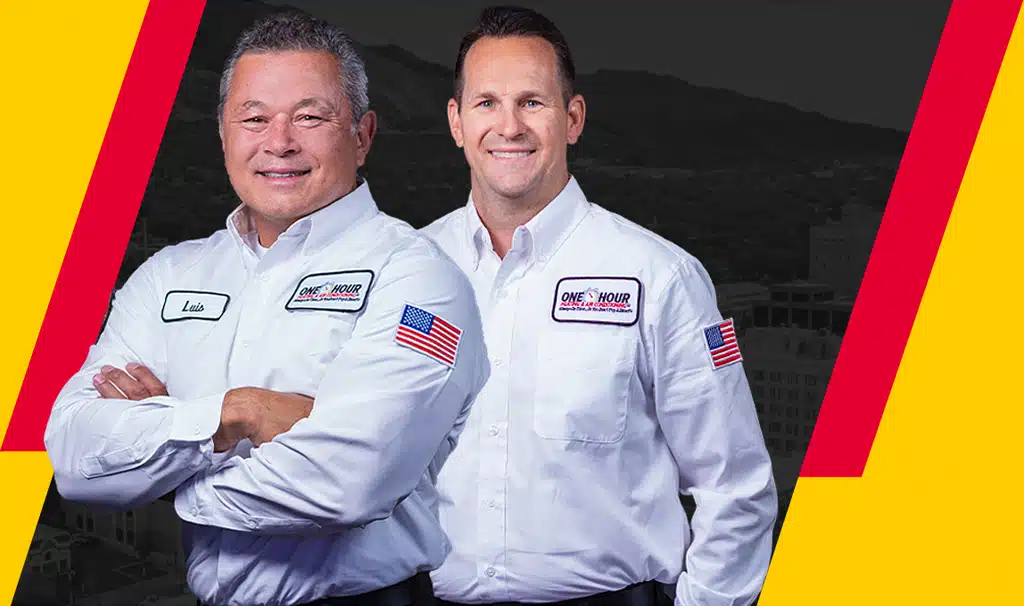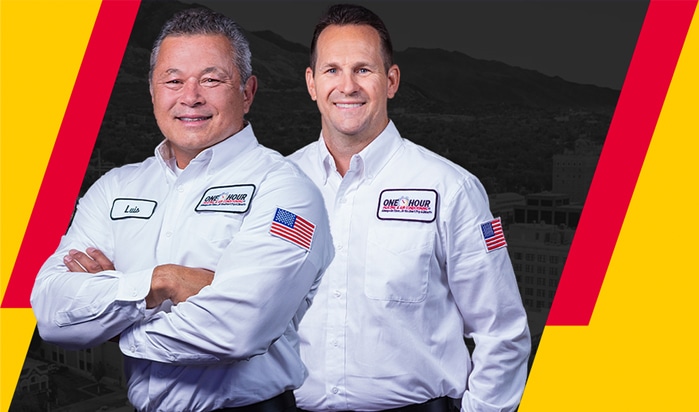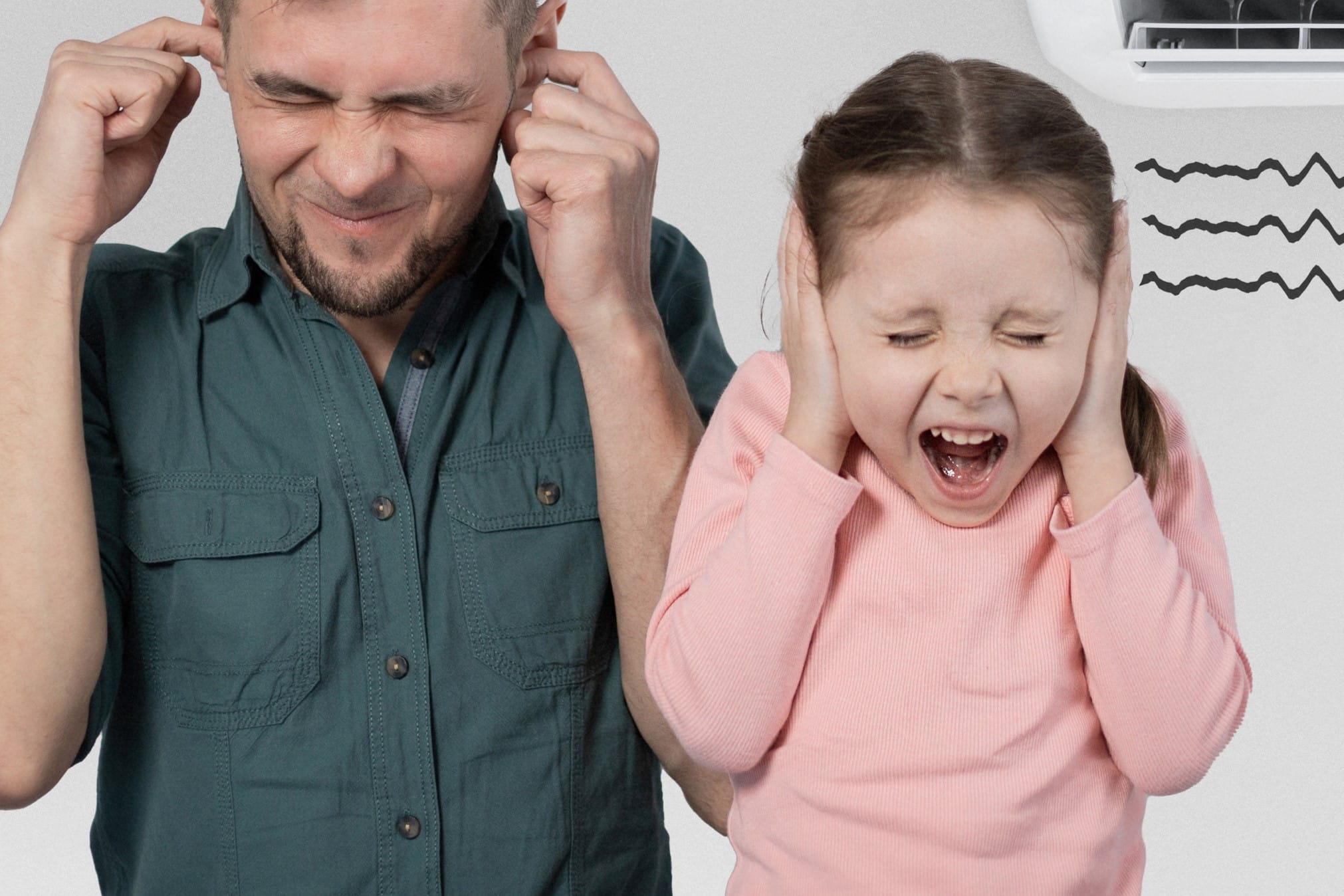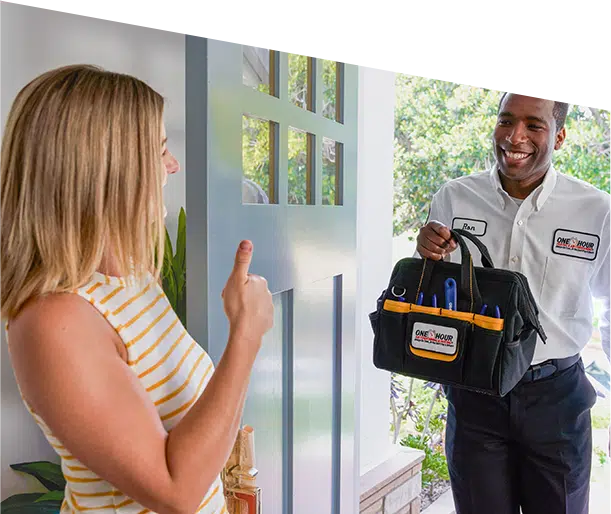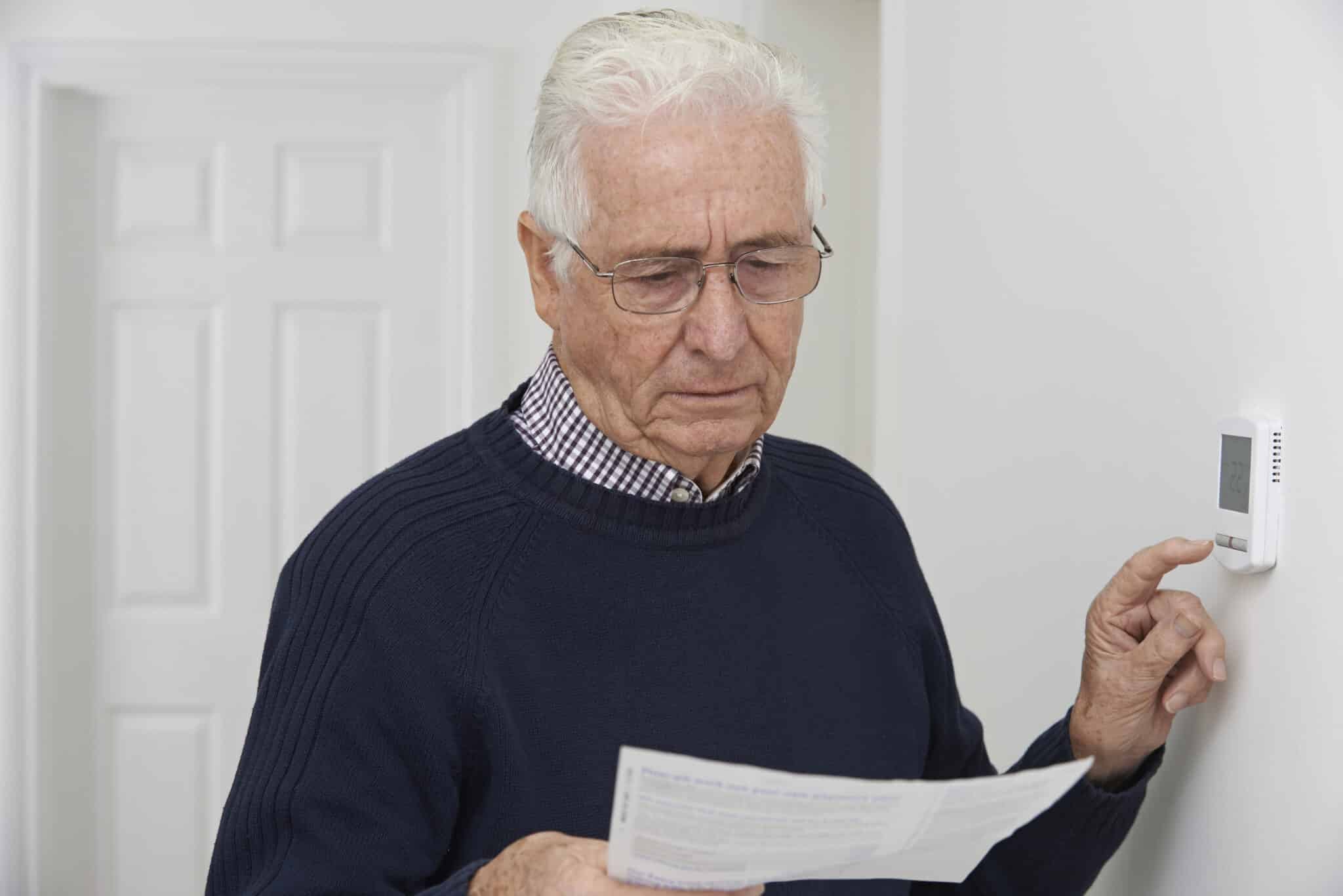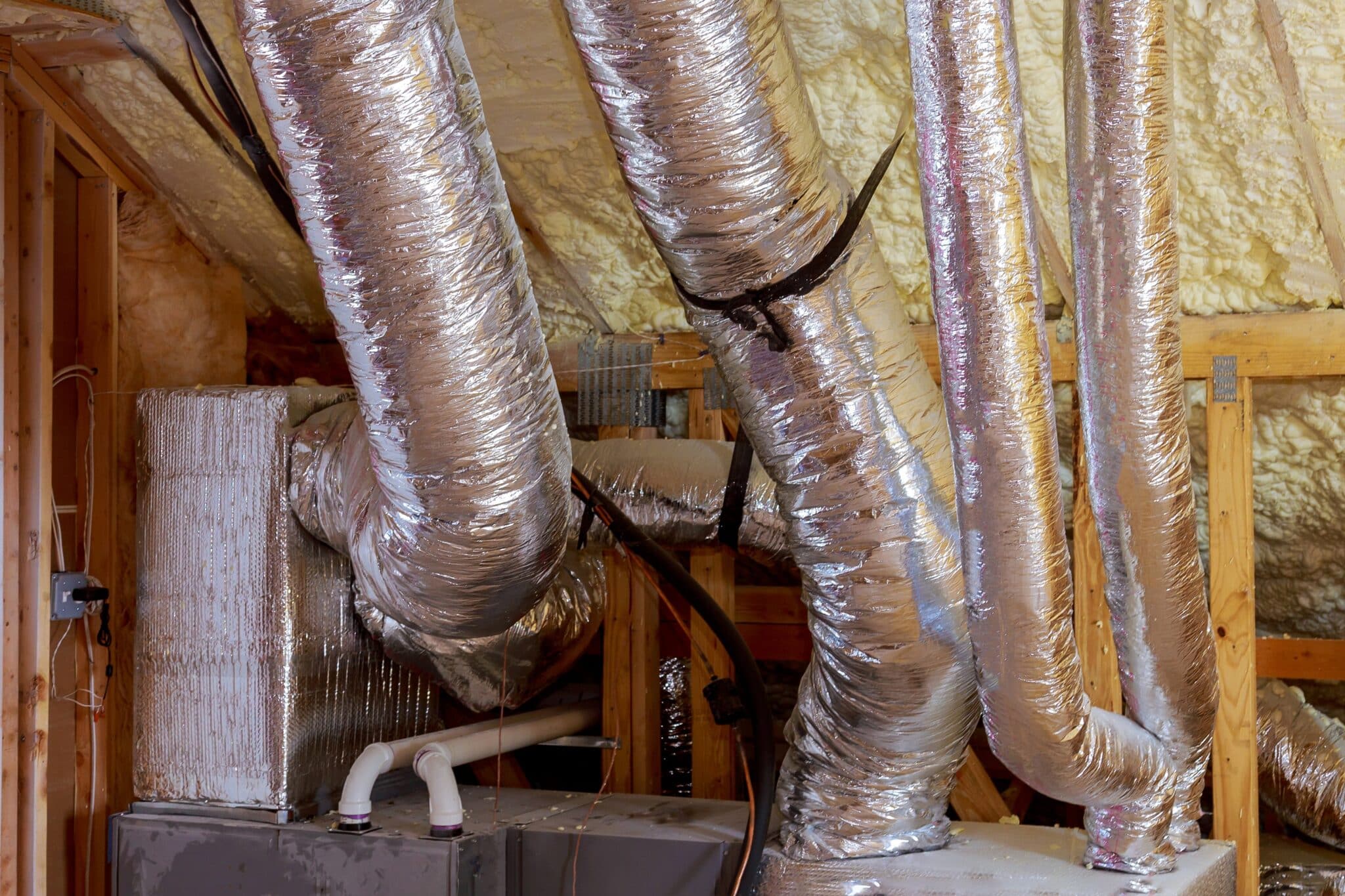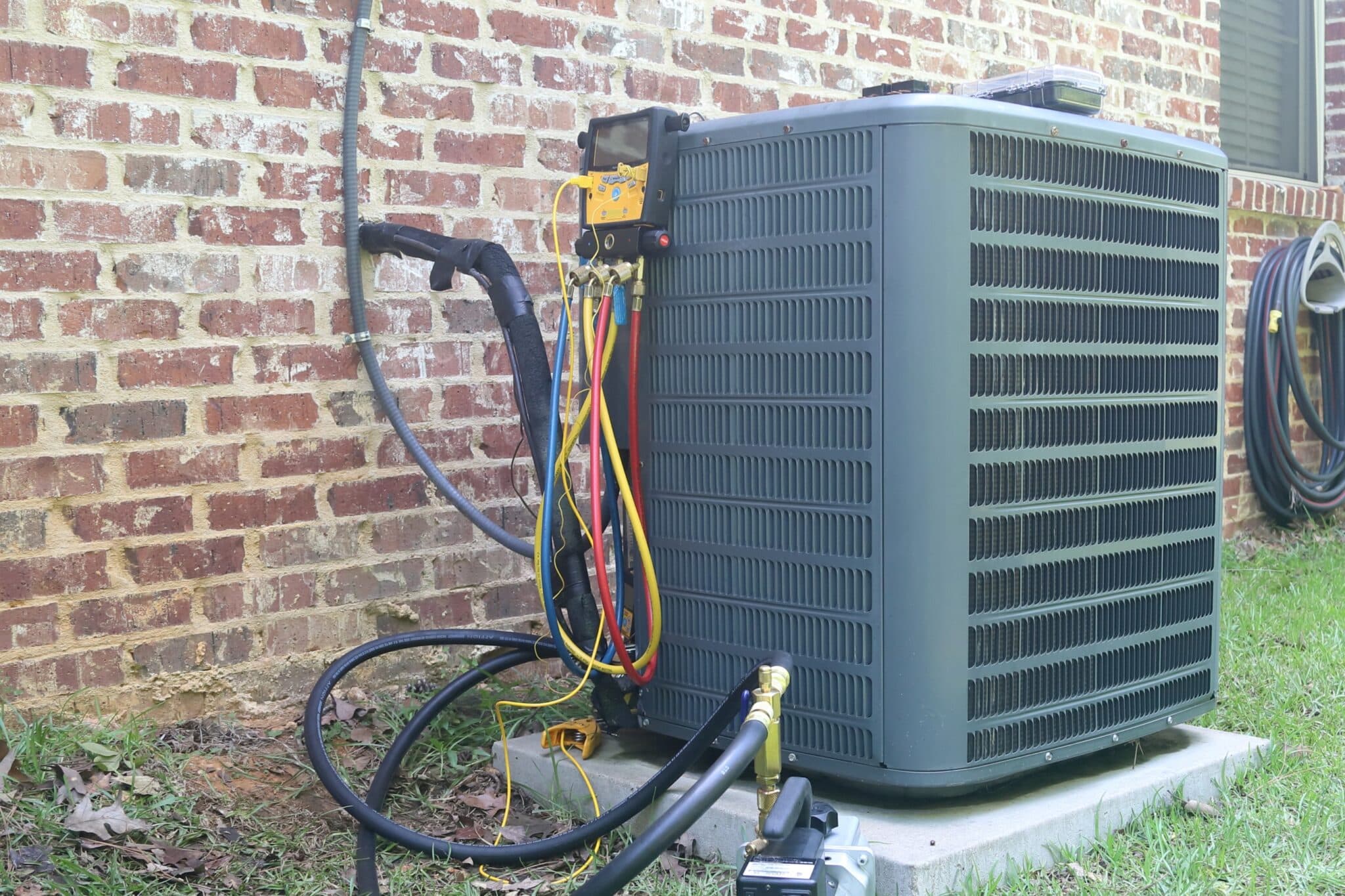Are you prepared for unexpected HVAC problems that could disrupt your comfort? A failing system can leave you out in the cold and facing expensive repairs. By identifying these common issues now, you can ensure your home stays warm and efficient all season long. Ready to safeguard your comfort? Let’s explore the top HVAC problems and how to prevent them.
1. Uneven Heating and Cooling
Uneven heating and cooling can make your home feel like a patchwork of different climates, with some rooms sweltering while others stay uncomfortably cold. This common HVAC problem signals underlying issues that can impact both your comfort and your system’s efficiency. Blocked vents are often to blame; they restrict airflow, leaving certain rooms starved of warm or cool air. Not only does this imbalance create uncomfortable living conditions, but it also forces your HVAC system to work harder, increasing energy usage and wear on your equipment.
Dirty filters are another hidden cause of uneven temperatures and one of the most common HVAC problems. When filters clog with dust and debris, they choke the airflow, preventing your system from distributing air evenly throughout your home. This leads to a cycle of inefficiency, higher energy bills, and unnecessary strain on your HVAC components. Improper thermostat settings also contribute to HVAC problems. If your thermostat is not calibrated correctly or is placed in a drafty or sunny area, it can misread the home’s temperature and send inaccurate signals to your system, resulting in erratic heating or cooling.
To tackle these problems, start by ensuring your vents are clear and your filters are regularly replaced. Proper thermostat placement and settings can also make a significant difference. If the problem persists, a professional inspection might uncover more serious issues, like duct leaks or failing components. By addressing these HVAC problems early, you can restore comfort, improve efficiency, and extend the lifespan of your system.
2. Strange Noises from the HVAC System
Strange noises coming from your HVAC system are more than just annoying—they’re often early warning signs of trouble that shouldn’t be ignored. Whether it’s a rattling, squealing, or banging sound, each noise can indicate specific issues that, if left unaddressed, could lead to costly repairs. Understanding what these noises mean and taking action can save you from bigger problems down the road.
Identify the Noise
Start by pinpointing the type of noise your system is making. Rattling sounds often signal loose parts, such as screws, bolts, or debris caught in the vents. Squealing noises are usually caused by worn belts or motor bearings that are struggling to keep up with demand. Banging or clunking could indicate a more serious problem, such as a failing compressor or disconnected components.
Investigate the Source
Once you’ve identified the noise, locate its source. Check accessible areas like vents, filters, and the thermostat for visible signs of wear or loose parts. Pay close attention to the air handler, blower motor, and ducts. If the noise is consistent or gets louder, it’s time to take action before the issue worsens.
Take Immediate Action
Tighten any loose screws or parts if you can safely access them. Replace worn belts or lubricate squeaky bearings as a temporary fix. For noises you can’t diagnose or repair yourself, schedule a professional inspection. Ignoring these sounds could lead to significant mechanical wear, system breakdowns, and expensive repairs.
Proactive maintenance and swift action are key to keeping your HVAC system running quietly and efficiently. Strange noises are often the first hint of a problem—addressing them early helps ensure your comfort and protects your investment.
3. High Energy Bills
If your energy bills have suddenly spiked without explanation, your HVAC system might be the silent culprit. High energy costs are often linked to HVAC inefficiency, and understanding the root cause can help you restore your system’s performance and save money. Several factors can drive up energy usage, and addressing them promptly will keep your home comfortable and your bills manageable.
Check the Thermostat
A malfunctioning thermostat can wreak havoc on your HVAC system’s efficiency. When the thermostat fails to accurately read your home’s temperature, it can cause your system to run longer than necessary or cycle on and off frequently. This constant strain increases energy consumption, driving up costs. Ensure your thermostat is properly calibrated and, if needed, consider upgrading to a programmable or smart thermostat to optimize your energy usage.
Inspect Insulation and Air Leaks
Poor insulation or unnoticed air leaks in your home can cause your HVAC system to work harder than it should. When warm or cool air escapes through gaps around windows, doors, or poorly insulated walls, your system compensates by running longer to maintain the desired temperature. Sealing leaks and improving insulation can significantly reduce the burden on your HVAC system and lower your energy bills.
Evaluate System Age and Efficiency
An outdated or aging HVAC system is another major contributor to rising energy costs. Older systems often lack the efficiency of newer models, leading to increased energy use as they struggle to meet your heating and cooling needs. Upgrading to a modern, energy-efficient unit can drastically cut energy consumption, reduce maintenance needs, and improve overall comfort.
Tackling these inefficiencies head-on can lead to significant savings. By addressing thermostat issues, sealing leaks, and considering a system upgrade, you can restore your HVAC’s performance and keep your energy bills in check.
4. Poor Air Quality
Poor air quality in your home isn’t just an inconvenience—it’s a hidden danger that can impact your health every day. Dust, allergens, and mold spores thrive in HVAC systems with clogged filters, turning your home into a breeding ground for pollutants.
When filters are dirty, they can no longer trap contaminants effectively, allowing harmful particles to circulate freely in your living spaces. This exposure can trigger allergies, worsen asthma, and lead to respiratory problems, especially in children and the elderly.
Clogged filters don’t just compromise your air quality—they also strain your HVAC system. When airflow is restricted, your system works harder to push air through dirty filters, leading to inefficiency and higher energy bills. Mold spores, dust mites, and pet dander settle into ducts and vents, creating persistent indoor air pollution that can’t be ignored.
Maintaining good air quality starts with regular filter changes—ideally every one to three months. High-efficiency filters can capture smaller particles, providing an extra layer of protection. For those with severe allergies or sensitivities, consider adding an air purifier or UV light to your system to eliminate mold and bacteria. Don’t let poor air quality compromise your comfort and health—take control of your HVAC maintenance to ensure the air you breathe is clean and safe.
5. System Short Cycling
One of the most frustrating HVAC problems homeowners face is system short cycling—when your HVAC system frequently turns on and off without completing a full cycle. This erratic behavior doesn’t just disrupt comfort; it’s a red flag for deeper issues that, if ignored, can lead to costly repairs or even system failure. Understanding the causes of short cycling can help you tackle these HVAC problems head-on and keep your system running efficiently.
Inspect the Thermostat for Misreadings
A malfunctioning thermostat is a common cause of HVAC problems like short cycling. If the thermostat is incorrectly calibrated or placed in a location prone to temperature swings—like near windows, doors, or heat sources—it sends inaccurate signals to your HVAC system. This results in the system turning on and off frequently, trying to compensate for perceived temperature changes. Make sure your thermostat is set correctly, and consider relocating it to a central, draft-free area. Upgrading to a smart thermostat can provide more precise control, reducing the likelihood of short cycling.
Check Wiring and Electrical Connections
Faulty wiring is another major contributor to HVAC problems, including short cycling. Loose or damaged wires can interrupt the communication between your thermostat and the system, causing it to cycle erratically. This electrical interference can lead to frequent shutdowns, higher energy consumption, and accelerated wear on your HVAC components. If you suspect wiring issues, it’s best to consult a professional technician to inspect and secure all connections, preventing further damage and ensuring safe operation.
Assess Refrigerant Levels
Low refrigerant levels are a less obvious but significant cause of short cycling, particularly in cooling systems. When refrigerant is too low, the HVAC system struggles to maintain the set temperature, leading to frequent starts and stops. This cycling not only reduces efficiency but also strains the compressor, one of the most expensive parts to repair or replace. Only a licensed HVAC professional should handle refrigerant, as proper assessment and recharging are crucial to restoring normal operation and preventing environmental hazards.
Addressing these HVAC problems promptly—whether thermostat misreadings, faulty wiring, or low refrigerant—can help resolve short cycling, improve efficiency, and extend your system’s life. Don’t let this common issue compromise your comfort; take steps now to safeguard your home’s heating and cooling performance.
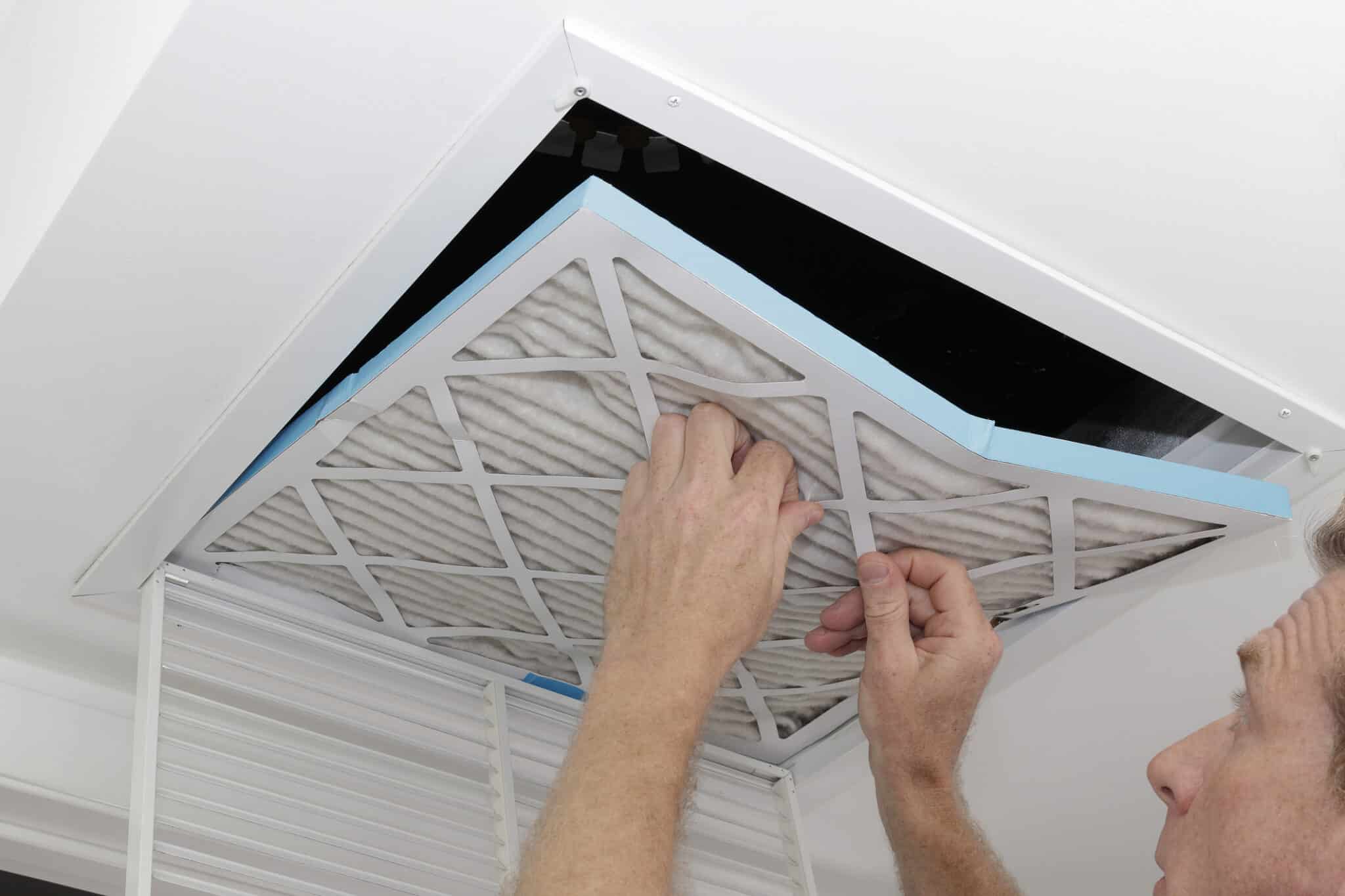
Preventative Maintenance Tips for October
October in Ogden, UT, signals the perfect time to prepare your HVAC system for the upcoming winter chill. Proactive maintenance can prevent common HVAC problems, ensuring your home remains comfortable when temperatures drop. These essential tips will help keep your system running efficiently throughout the season.
-
Replace Air Filters Regularly
In Ogden, fall often brings dust and allergens that can quickly clog HVAC filters. Dirty filters restrict airflow, forcing your system to work harder and driving up energy costs. Replacing filters every one to three months during October is critical to maintaining good air quality and preventing common HVAC problems. Clean filters help your system run smoothly, providing consistent heat throughout your home.
-
Test and Adjust Thermostats
Before the cold really sets in, take time to test your thermostat’s accuracy. A poorly calibrated thermostat can lead to uneven heating and frequent system cycling, which not only affects comfort but also spikes energy bills. Consider upgrading to a smart thermostat, which learns your schedule and adjusts temperatures automatically, optimizing efficiency and reducing strain on your HVAC system. In Ogden’s fluctuating fall temperatures, a smart thermostat can be a game-changer.
-
Schedule a Professional HVAC Inspection
October is an ideal time for a professional inspection, especially in Ogden, where winters can be unpredictable and harsh. At One Hour Heating & Air Conditioning of Ogden, UT, our certified technicians can identify emerging HVAC problems, such as worn components, low refrigerant levels, or electrical issues that aren’t visible during regular checks. Regular inspections ensure your system is fully prepared for winter, preventing unexpected breakdowns during the season’s coldest days. Don’t wait until it’s too late—contact One Hour Heating & Air Conditioning of Ogden, UT, today to schedule your professional HVAC inspection and keep your home comfortable all winter long.
-
Clear Debris from Outdoor Units
Ogden’s fall foliage, while beautiful, can wreak havoc on your outdoor HVAC unit and contribute to common HVAC problems. Leaves, dirt, and debris can clog the unit, restricting airflow and reducing efficiency. Spend a few minutes clearing the area around your outdoor unit to prevent blockages that can lead to overheating and system strain. This simple step can make a significant difference in your system’s performance as temperatures drop.
-
Seal Drafts and Insulate
Ensuring your home is properly sealed and insulated keeps the warm air in and the cold air out, reducing the workload on your HVAC system. Inspect windows, doors, and attic spaces for drafts, and add insulation where necessary. In Ogden, where cold snaps can occur suddenly, sealing drafts and adding insulation in October can help you maintain consistent temperatures and lower your energy bills throughout winter.
By following these preventative maintenance tips, you can tackle HVAC problems before they start and ensure your system is ready for the challenges of an Ogden winter. Stay ahead of the season, protect your investment, and keep your home warm and efficient all winter long.
When to Call a Professional
Knowing when to call a professional can save you from costly HVAC problems down the road. If you notice unusual noises, uneven temperatures, or frequent system cycling, it’s time to call in the experts at One Hour Heating & Air Conditioning of Ogden, UT. These signs often indicate deeper issues like worn components, refrigerant leaks, or electrical faults that can’t be fixed with DIY solutions. Early detection is key; catching problems early not only restores comfort but also prevents minor issues from escalating into expensive repairs.
Regular maintenance checks are essential but don’t wait until your system breaks down to act. A professional inspection can uncover hidden HVAC problems quietly draining energy and driving up bills. By addressing these issues early, you extend the life of your system and maintain peak efficiency. Contact One Hour Heating & Air Conditioning of Ogden, UT, today to schedule your inspection and keep your HVAC running smoothly all season long.
Why Choose One Hour Heating & Air Conditioning of Ogden, UT
Facing HVAC problems? One Hour Heating & Air Conditioning of Ogden, UT, stands out as the trusted leader in home comfort solutions. Our team of certified professionals goes beyond standard repairs, offering tailored services that address your specific HVAC problems with precision. We understand the unique challenges of Ogden’s climate, providing solutions designed to optimize system performance in every season.
What sets us apart is our commitment to proactive care. Our maintenance plans are designed to prevent HVAC problems before they disrupt your comfort, saving you time, money, and stress. We prioritize your peace of mind with dependable, on-time service that respects your schedule. From emergency repairs to routine maintenance and system upgrades, One Hour Heating & Air Conditioning of Ogden, UT, is dedicated to delivering exceptional service and unmatched expertise. Contact us today to experience the local difference and keep your home comfortable year-round.
Contact Us Today
Facing HVAC problems? Don’t wait—contact One Hour Heating & Air Conditioning of Ogden, UT, for prompt and professional service. Our experienced technicians are here to provide expert repairs, maintenance, and system upgrades tailored to your needs. We’re committed to ensuring your home stays comfortable year-round. Call us today or schedule an appointment online to experience the dependable service that sets us apart.
FAQs: Common HVAC Problems and Solutions
-
What are the most common HVAC problems?
Common HVAC problems include uneven heating, strange noises, frequent cycling, and increased energy bills. These issues often indicate underlying faults like dirty filters, malfunctioning thermostats, or refrigerant leaks.
-
How often should I replace my HVAC filter?
Replace your HVAC filter every 1-3 months, especially during peak seasons. Clean filters improve airflow, reduce strain on the system, and help prevent common HVAC problems.
-
Why does my HVAC system keep turning on and off?
This is called short cycling and could be due to thermostat issues, wiring problems, or low refrigerant levels. A professional inspection can pinpoint and resolve the problem.
-
How can I reduce my energy bills with HVAC maintenance?
Regular maintenance, including cleaning coils, checking refrigerant levels, and tuning up the system, ensures your HVAC runs efficiently, reducing energy costs and preventing expensive repairs.
-
When should I call a professional for HVAC problems?
If you notice unusual noises, inconsistent temperatures, or rising energy bills, contact a professional. Early intervention prevents minor issues from becoming costly repairs.

